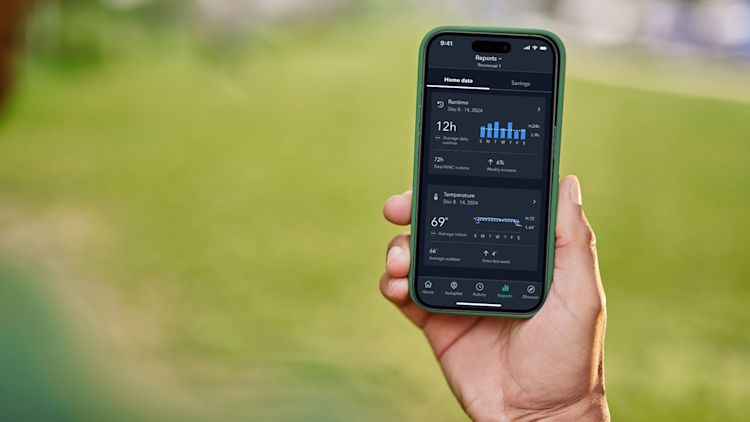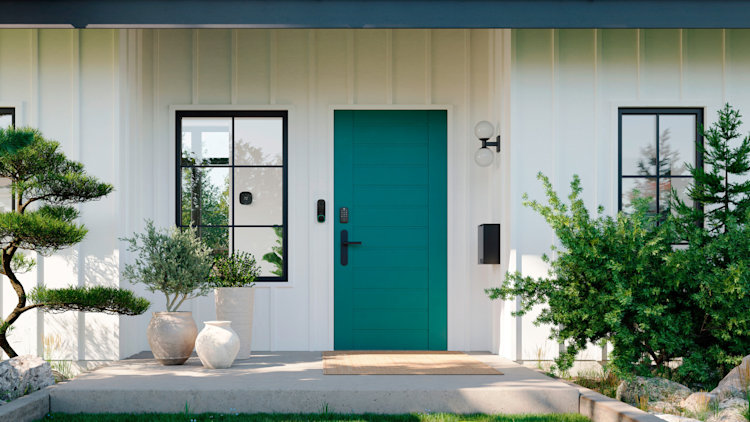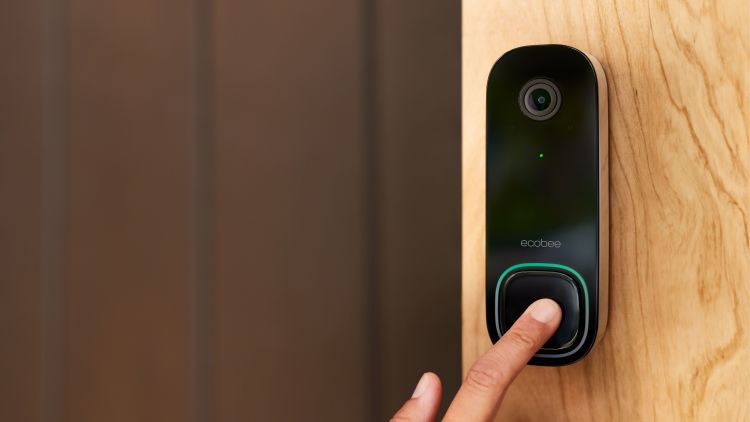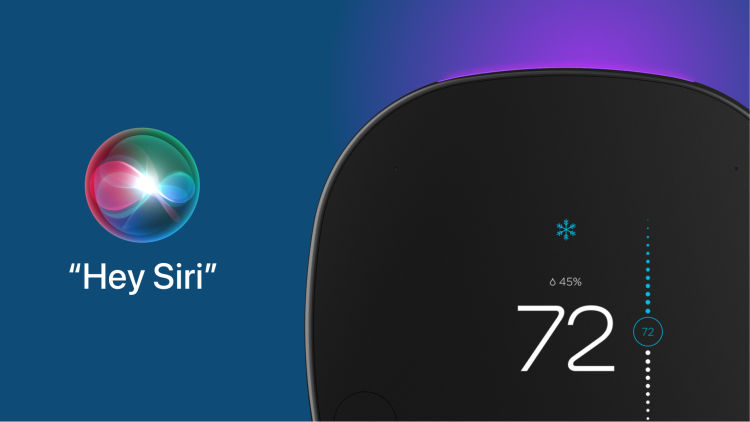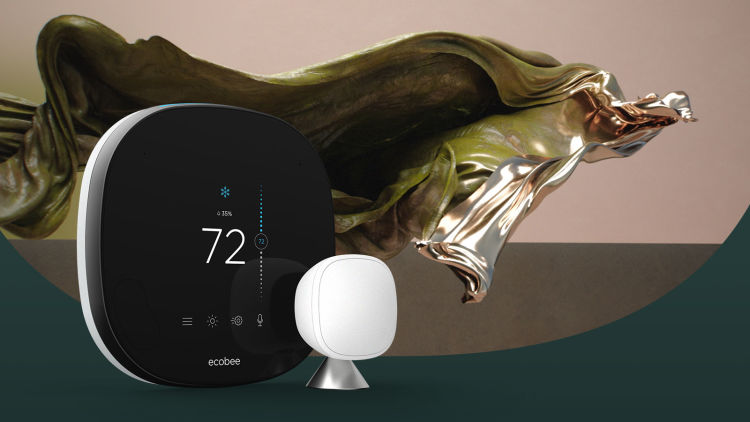How eco+ is Maximizing Energy Efficiency In Over One Million Homes
The next generation software for ecobee thermostats helps you save money and the environment all in one step.
by ecobee on 10/21/2020 in News
9 min read
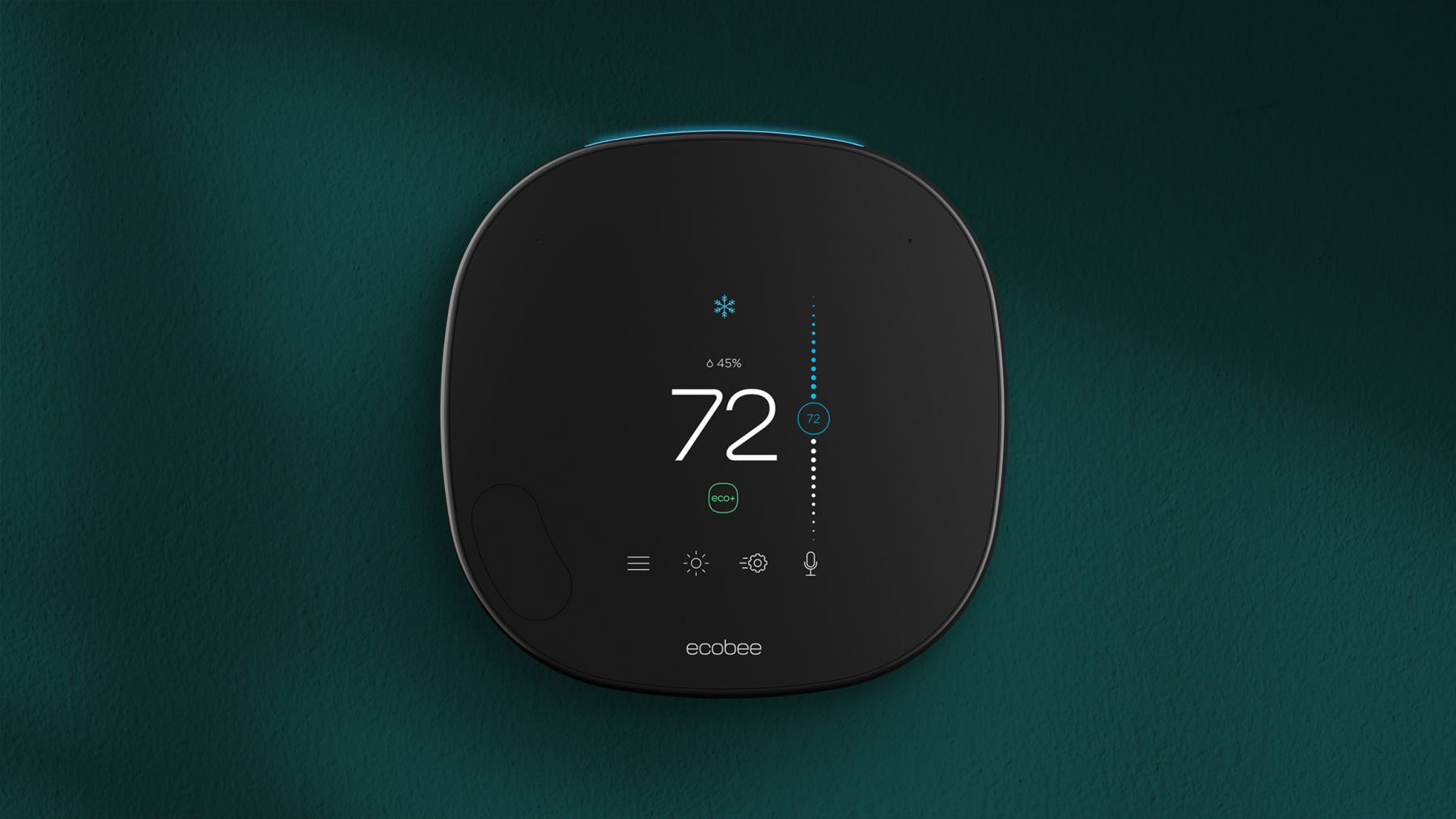
The computer that got the Apollo 11 astronauts to the moon and back in 1969 was the most powerful system of its time. We’ve come a long way since then; the processor inside the ecobee thermostat hanging on your wall could simulate the moon landing half a million times at once.
eco+ shatters the myth that you have to be too hot or too cold in order to save money on energy.
“We looked at the incredible power of our thermostats and said, from a hardware standpoint, we have everything we need to take the next step in enhancing our customers’ comfort and energy savings while making a positive impact on the environment,” said Chris Carradine, executive vice president, energy, ecobee.
That insight led to the creation of eco+, ecobee’s next-generation software that fully automates your comfort and energy savings.
Best of all, eco+ is available for all ecobee smart thermostats released since 2014.

How ecobee users are saving more with eco+.
eco+ uses machine learning to understand the rate at which your home heats and cools. It then factors in your daily occupancy habits, comfort preferences, the local weather, and the cost of electricity at different times of the day to build a more precise thermal model of your home.
By tailoring the way your HVAC system heats and cools to your personal preferences, eco+ helps you stay more comfortable, consume cleaner, greener energy, save money, and can even put cash back in your pocket.
More than 1 million ecobee thermostat owners have enabled eco+ with a single tap in the ecobee app.
In a year in which many families are spending more time than ever at home due to COVID-19, eco+ users averaged an additional 5% in savings on their cooling and heating costs compared to other ecobee users.† That’s in addition to the up to 23%* in energy savings that all ecobee thermostat owners enjoy.
“eco+ shatters the myth that you have to be too hot or too cold in order to save money on energy, and we believe we can find even more savings without compromising comfort as we build even more intelligence into our platform,” said Kevin Banderk, chief revenue and marketing officer, ecobee.
Here's how ecobee is continuing to transform home energy use with eco+.
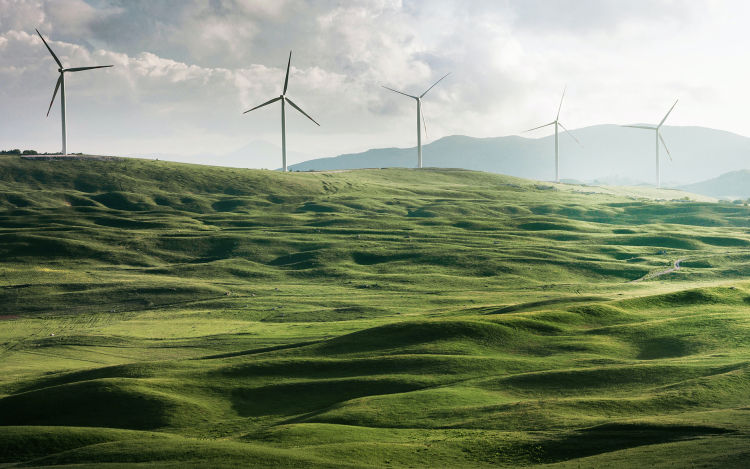
eco+ helps users power their homes with low-cost, green energy.
One of the major challenges with renewable energy is its variability. While it’s low cost, it’s not always available when it’s most needed. If the excess energy produced by wind and solar can’t be stored, it’s lost.
HVAC systems are the most energy-intensive devices in most homes, accounting for over 50% of home energy consumption.1 If we can shift more of the HVAC system’s energy consumption to times of the day when renewable energy production is higher and prices are lower, we can consume more of the clean, lower-cost energy generated by wind and solar.
eco+ Time of Use users saved up to an additional 23% on the heating and air portion of their electricity bills.
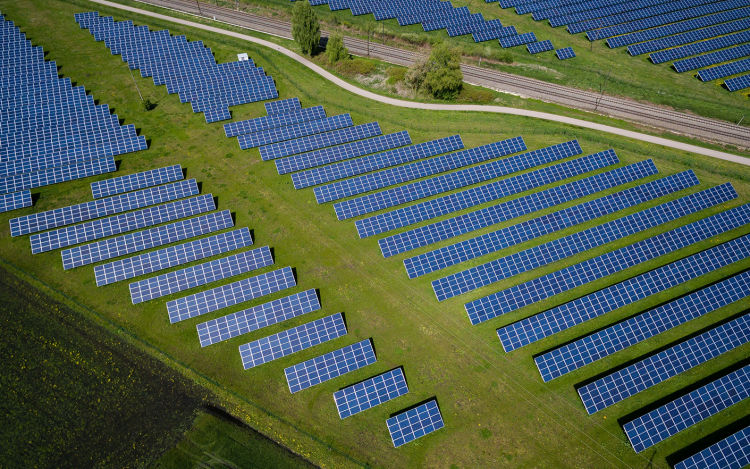
That’s where eco+ Time of Use (TOU) comes in. With TOU, your entire home effectively becomes a thermal battery, storing clean, green energy for later use during peak periods when energy is more expensive to produce.
When we pre-cool the home with less expensive energy, we know precisely how long it will keep that cool temperature.
“We can power the home more efficiently by pre-heating or cooling when energy is less expensive and cleaner. eco+ can do this because its thermal model tells it exactly how long your home can keep a desired temperature without running the HVAC equipment,” said Stuart Lombard, ecobee founder and chief executive officer.
In areas where energy prices vary by time of day, TOU users saved up to an additional 23% on the HVAC portion of their electricity bills.†

eco+ users are being rewarded for helping their communities.
When the supply of energy can’t keep up with demand, energy grid operators bridge the gap by firing up so-called peaker plants that are often powered by fossil fuels. Burning fossil fuels worsens local air quality and contributes to climate change.
Sometimes the power supply can become dangerously overwhelmed to the point where operators are forced to shut off power to avoid longer outages and damage to the system. To make matters worse, these outages tend to occur at the worst possible times of year—during a summer heatwave when people rely on air conditioning or in the depths of winter.
According to climate scientists, a warming planet will mean more heat waves and increased reliance on grid-straining air conditioners.
According to climate scientists, a warming planet will mean more heat waves and increase our reliance on power-hungry, grid-straining air conditioners. It will also mean more frequent power outages and more infrastructure damage due to extreme weather.2
Some utilities provide cash incentives to customers willing to cut their energy consumption to reduce strain on the grid when demand peaks.
Unfortunately, to date, enrollment in these programs has been low, mostly due to these factors:
-
Utilities often apply aggressive setbacks to program participants’ thermostats or completely cut power during peak demand.
-
The enrollment process for these programs is viewed as clunky.
Understandably, most people aren’t willing to completely hand over control of their comfort to their utility, especially during a summer heat wave or winter cold spell when they need it most.
When we looked at how utilities were handling demand response, we thought, there’s a better way to do this.
“We don’t think people should ever be uncomfortable in their homes. So, when we looked at how utilities were handling demand response and the resulting enrollment rates, we thought, there’s a better way to do this,” said Carradine.
ecobee’s answer to this problem, eco+ Community Energy Saving (CES), puts an end to the discomfort associated with utility demand response events and makes enrollment simple.
ecobee thermostat owners can now enroll in their local demand response program with one tap in the ecobee app, and choose their desired comfort and savings level with a slider on a simple scale of one to five.
By making enrollment easier and more attractive than ever, we’re taking the lead on the evolution of demand response.
When a planned demand response event is scheduled, eco+ will pre-heat or pre-cool the home to a comfortable level. During an event, the temperature is automatically set according to the customer’s chosen preference. It's in this way that CES helps keep the energy grid humming when demand is high.
The results have been overwhelmingly positive for ecobee owners and their utilities, alike. In the year since Community Energy Savings launched as part of eco+, enrollment has soared and ecobee customers have received over $8.6 million in incentives from their utilities.
“CES is a great example of how we put the homeowner at the center of everything we do. By building new programs that make enrollment easier and more attractive than ever, we’re taking the lead on the evolution of demand response,” said Lombard.
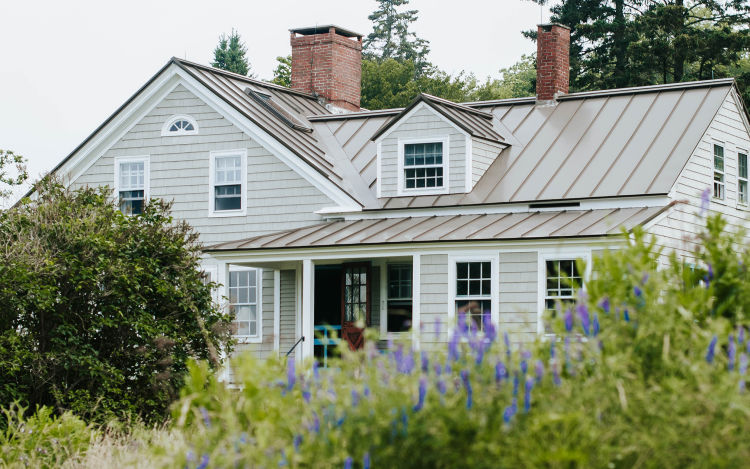
eco+ features for an improved life at home.
ecobee smart thermostats were among the first to be ENERGY STAR certified to deliver cost savings and keep you comfortable. eco+ builds on this solid foundation by learning your household routine and taking into account more factors like indoor humidity for a new level of personalized comfort.
Schedule Assistant
According to ENERGY STAR, keeping an accurate thermostat schedule is the easiest way to lower your heating and cooling costs and reduce your home’s energy footprint.2
The eco+ Schedule Assistant learns your occupancy schedule. When your routine changes, it recommends a new thermostat schedule and gives you the choice to implement it or not. One tap is all it takes to lock it in.
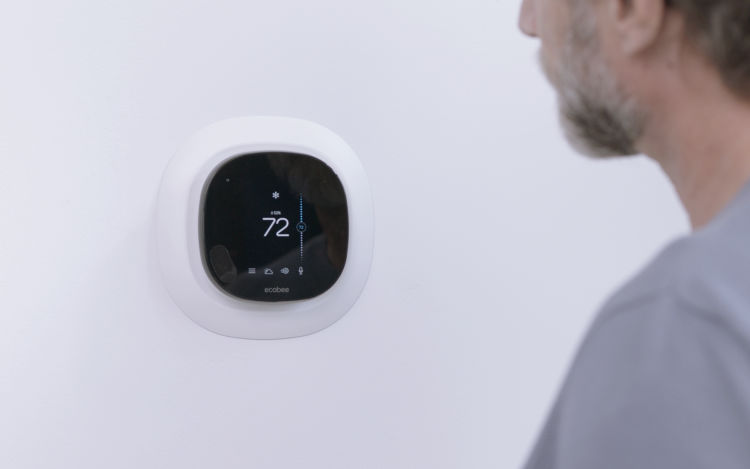
Adjust temperature for humidity
We all know that sticky, uncomfortable feeling of walking outside on a hot and humid summer day. Humidity also affects the way we experience temperature indoors. For instance, an indoor temperature of 72°F feels cooler at 40% humidity than it does at 60% humidity.
ecobee uses the humidity reading on your thermostat to make sure your home always feels like the temperature on your thermostat, without heating or cooling more than is needed. With ecobee, you’ll be more comfortable year-round, despite indoor humidity changes.
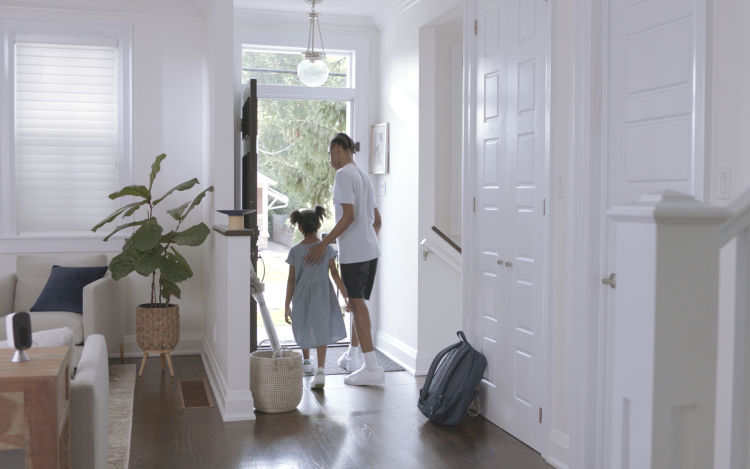
Smart Home & Away
Smart Home & Away uses occupancy-sensing and geofencing from your smartphone to account for random changes in your schedule. Because even the most accurate thermostat schedule isn’t perfect.
If you arrive home during a scheduled away period, it sets the temperature for comfort. When you step out, Smart Home & Away automatically reverts to an energy-saving temperature.
A longstanding feature of ecobee thermostats, Smart Home & Away now uses eco+’s advanced thermal model of your home to switch between your thermostat’s energy savings and comfort modes more efficiently.
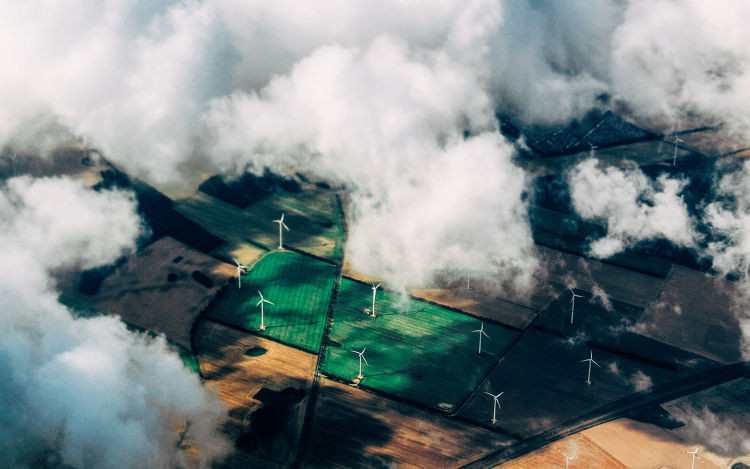
Positive for people and the environment.
UN Intergovernmental Panel on Climate Change (IPCC) research suggests that to keep global warming in check, the world’s energy supply must be carbon neutral by 2050.4
Getting to net-zero carbon emissions by mid-century will require transforming today’s fossil fuel-intensive energy grid into one that’s almost solely based on carbon-free energy sources, including renewables like wind, solar, biomass, and where appropriate, hydro and nuclear.
eco+ is helping us get closer to a truly electrified future free of carbon emissions by providing grid operators with the tools to better manage demand during peak times and by helping customers stay comfortable and power their homes with more low-cost, green energy.
Mobile users with the ecobee app can start using eco+ right now.
How? It's easy. Select More on the app's home screen. Tap the hamburger menu icon in the bottom-left corner, then eco+, and Enable.
* Compared to a hold of 72°F/22°C.
† Based on a study conducted by a third-party expert during summer 2020 across the US and Canada. Savings vary by season, climate zone, and rate structure.
1 “Use of energy explained.” U.S. Energy Information Administration.
2 “Are Blackouts Here to Stay? A Look Into the Future.” Scientific American.
3 “Smart thermostats.” ENERGY STAR.
4 "What is carbon neutrality and how can it be achieved by 2050?” European Parliament.
Did you enjoy this article?
Thanks for letting us know!

